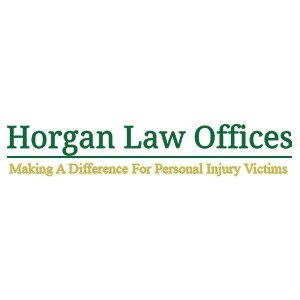Best Accidents & Injuries Lawyers in New London
Share your needs with us, get contacted by law firms.
Free. Takes 2 min.
List of the best lawyers in New London, United States
United States Accidents & Injuries Legal Articles
Browse our 1 legal article about Accidents & Injuries in United States written by expert lawyers.
- What to Do After a Serious Car Accident in the US: A Legal Step-by-Step Guide
- Call 911, get medical help, and do not admit fault. Photograph the scene, vehicles, and your injuries, and get witness names and the officer's report number. Report the crash to your insurer quickly. In no-fault states, PIP deadlines are short (e.g., Florida requires initial treatment within 14 days; New York... Read more →
About Accidents & Injuries Law in New London, United States
New London, a city in Connecticut, USA, follows state regulations when it comes to accidents and injuries law. These laws govern cases where an individual suffers harm due to another party's negligence or irresponsibility. The outcomes usually lead to the responsible party compensating the injured individual for the harm caused. The types of accidents often covered include, car accidents, workplace injuries, slip and fall accidents, medical malpractice, and products liability claims.
Why You May Need a Lawyer
A lawyer's role becomes crucial for several reasons. It may be complex to understand the legal terms, procedural rules, and to complete the paperwork associated with a claim. Additionally, insurance companies may often attempt to provide the least possible compensation, which may not cover all medical expenses or lost wages, needing legal negotiation. Moreover, if the injury results in permanent disability or is fatal, a lawyer can help determine the future costs and argue for suitable compensation.
Local Laws Overview
Relevant Connecticut's state laws applicable to New London for accidents and injuries include a 'modified comparative negligence rule.' Herein, if you're found a little at fault in the incident causing injury, your compensation would be reduced by your percentage of fault. If you're more at fault, you would not receive any compensation. The state also imposes a statute of limitations of two years for personal injury cases.
Frequently Asked Questions
What is 'Negligence'?
Negligence is defined as a lack of care that a reasonable person would have exercised in similar circumstances, resulting in harm to another individual. It is a key element in accidents and injury cases.
What if I am partly at fault?
Connecticut follows the 'modified comparative negligence rule.' If you are found to be partially at fault, your damage award will be diminished in proportion to your share of blame.
How do I prove my accident was someone else’s fault?
It would help if you showed that the accident resulted from another’s negligence. Evidence can include witness testimonies, police reports, any video footage, and the defendant's violation of a law.
Can I still file a lawsuit if I waited too long?
Connecticut imposes a timeframe, called a statute of limitations, within which you must file a personal injury claim. If you do not file within this time, you may lose your right to sue.
Will my case go to court?
While many accident cases are settled outside of court, sometimes when an agreement can't be reached, the case might need to go to trial. However, it's important to remember that even cases going to trial often settle before reaching a courtroom.
Additional Resources
Resources for more information and support include the Connecticut Judicial Branch Law Libraries, Connecticut Legal Services, and New London County Bar Association. For governmental support, you may refer to the official city website of New London or the Connecticut Department of Public Health for state regulations.
Next Steps
If you believe you have a valid accident or injury claim, it would be best to immediately consult with an experienced personal injury attorney in New London. You should preserve all available evidence related to your injury and maintain records of all related costs or losses you have incurred. This information will be vital for your attorney to build a solid case.
Lawzana helps you find the best lawyers and law firms in New London through a curated and pre-screened list of qualified legal professionals. Our platform offers rankings and detailed profiles of attorneys and law firms, allowing you to compare based on practice areas, including Accidents & Injuries, experience, and client feedback.
Each profile includes a description of the firm's areas of practice, client reviews, team members and partners, year of establishment, spoken languages, office locations, contact information, social media presence, and any published articles or resources. Most firms on our platform speak English and are experienced in both local and international legal matters.
Get a quote from top-rated law firms in New London, United States — quickly, securely, and without unnecessary hassle.
Disclaimer:
The information provided on this page is for general informational purposes only and does not constitute legal advice. While we strive to ensure the accuracy and relevance of the content, legal information may change over time, and interpretations of the law can vary. You should always consult with a qualified legal professional for advice specific to your situation.
We disclaim all liability for actions taken or not taken based on the content of this page. If you believe any information is incorrect or outdated, please contact us, and we will review and update it where appropriate.
Browse accidents & injuries law firms by service in New London, United States
New London, United States Attorneys in related practice areas.








